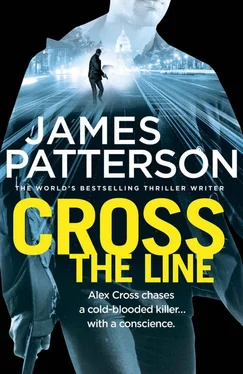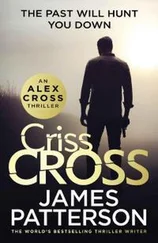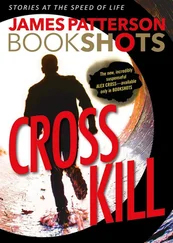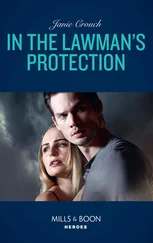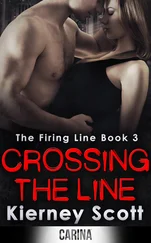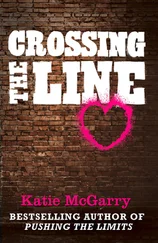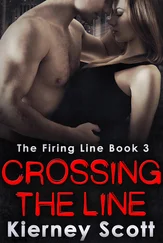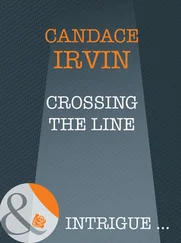“Shot from one shed roof or another,” Mahoney agreed. “The roofs are slanted toward us and yet we haven’t seen a single spent casing on the ground.”
“If each sniper shoots once, there’s no reloading, so no brass,” I said.
We walked past the forward semi and looked to the Mustang and the two dead men lying in the field with tape up around them and a crew of FBI criminalists documenting the scene. Figuring we’d better not disturb them, we walked back to the rear semi, the only one without a truck grille up against its rear bumper.
Deputy Max Wolford, who’d discovered the massacre, was waiting with the bolt cutters.
Sampson said, “How much do you want to bet we don’t find radishes and baby greens in here?”
“I vote for drugs and money,” Mahoney said, and he nodded to Wolford, who centered the lock shackle between the cutter’s blades and snipped it off. Sampson worked the lever and threw up the door.
A cloud of cold humid air billowed from the refrigerated unit, and sunlight poured inside. It wasn’t what we’d expected. Not at all.
“Jesus Christ,” Sampson said. “I didn’t see that coming.”
I swallowed my reaction, drew my gun, held up my badge, and climbed in.
Four blue corpses in underwear were laid out on tarps on top of stacks of wooden produce crates marked cucumbers, tomatoes, and lettuce. Three of the dead were young women, late teens and early twenties. The fourth was a young boy, maybe a year older than Ali, no more.
Beyond the bodies and the crates, far back in the container, I could see the shoulders, heads, and fearful eyes of at least thirty people of various races and colors, mostly young women and a few young boys dressed in ragged winter clothes, all pressed tight together, teeth chattering, trying not to freeze to death.
“Move the trucks so we can get the other containers open,” I told Mahoney. “We’ve got to get emergency medical crews in here.”
“And a lot more support,” Mahoney said, pulling out his cell phone.
I pulled off one of the tarps, gave it to Sampson, said, “Cover the Viper. They don’t need to see that.”
He took it, and I started clearing a path through the produce boxes.
“I’m with the police,” I said. “We’re getting you all help.”
They stared at me either shyly or blankly.
“Any of you speak English?” I asked.
A few of them shifted their eyes, but not one replied.
When I reached them, some were crying, and some shrank from me, would not look at me, as if they were both afraid and ashamed somehow. I tried to smile reassuringly and gestured toward Sampson. At first, no one moved.
Then a pretty young woman with black hair wearing a gray snorkel parka broke from the group and hurried past me. A stream of them followed. Only a few glanced at the corpses on the way out.
Sampson helped them off the truck, and they lay down in the grass in the baking sun beyond the shrouded Viper, weeping, hugging, and consoling one another in at least five languages.
State troopers brought jugs of water and boxes of PowerBars, which they tore into ravenously. After the cabs of the other trucks had been photographed, we had the miserable task of removing the dead and placing them on the plank floors of the drying sheds.
In the other two containers we found a total of five corpses and sixty-seven survivors.
“We have no idea how long they’ve been in there,” Sampson said, frustrated as the scope of the situation sank in. “We have no idea where they came from or who all these dead guys are. There’s not a stitch of identification on any of them.”
We were standing to the side, watching as EMTs and disaster-relief workers began to arrive. I noticed the girl who’d left the container car first, the one with the dark hair who’d scurried past us in the gray snorkel parka. She’d stripped off her heavy coat and pants, revealing shorts and a long-sleeved pink T-shirt with silver sequins spelling out goddess. She was within earshot and as we spoke, she kept glancing our way.
I smiled and crooked a finger at her. Goddess acted like she didn’t understand. I went over and crouched next to her.
“You can stop pretending that you don’t know any English,” I said.
She looked at her lap.
“We’re here to help,” I said. “But we need your help in return.”
There was no change in her affect, just a casual glance up, as if she were looking through me toward something far away.
“Suit yourself,” I said. “But U.S. Immigration will be getting involved soon enough. If you want a chance at staying in this country, you need to start talking.”
Her pupils dilated and her breath quickened. I saw both tells, shrugged at her as if I were done, stood up, and took a few steps toward Sampson.
She called after me in a thick accent, “You get me a pack of Marlboros and I try to help you.”
“You believe her?” Bree asked when I finally got home around eleven that night after one of the more upsetting days of my life.
“I’ve got no reason not to believe her,” I said, eating leftover lamb kebabs with a sweet, fiery peanut sauce Nana Mama had come up with. “Several of the other young ladies who spoke English told a similar story. The young boys too.”
“It’s inhuman,” she said.
“No argument there,” I said, my thoughts traveling back to Mina Codrescu sitting on her snorkel coat and taking a long drag on that first Marlboro before she spoke.
Mina was nineteen and from the city of Balti in northern Moldova, a small, impoverished country between Hungary and Ukraine. Her mother was dead, she’d told us; her father was a drunk. She had no assets other than an ability to speak English and a dream of someday going to America, so when a Russian man she met in a bar told her there was a way she could go to the States, she’d been interested. He took her to Chişinău, the capital of Moldova, where she met a second Russian man.
“He said he would bring me to America in return for five years of work,” Mina had told me, blowing out smoke from her cigarette and looking away.
“What kind of work?” Sampson had asked.
“Sex work,” she’d said defiantly.
“You agreed to it?”
“I’m here, aren’t I?” she said and took another drag.
I said nothing.
Mina waved her cigarette at the scenery and in the same defiant tone said, “This was worth it. For this, I would do it again. Look, I am here, in America. I can smell my dream here. If I didn’t say yes, none of this happens.”
“We’re not judging you, Mina,” I said. “Just listening. Tell me how it worked after you agreed to the deal.”
Mina said she had had sex with the second Russian for three days, and then he’d handed her a ticket for Miami. A woman she knew only as Lori met her in Florida.
Lori took her passport and cell phone. She told Mina she’d get the passport back in five years and the cell phone once she was assigned to a particular locale. Lori brought Mina to a truck depot in the middle of the night. Delivery vans pulled up, and other women and boys began to pour out.
Piles of old winter clothes were dumped out on the ground and they were told to put them on. Lori had set aside the snorkel parka, pants, and boots for Mina, and she’d helped her into the refrigerated truck with assurances that her life would be much better at the other end of the drive. Luxurious, even.
“It wasn’t bad for me because it gets cold where I come from,” Mina had said. “But others, they barely had any clothes. We tried to keep them warm, but some of them were sick and too weak already from traveling, and they just died.”
Читать дальше
